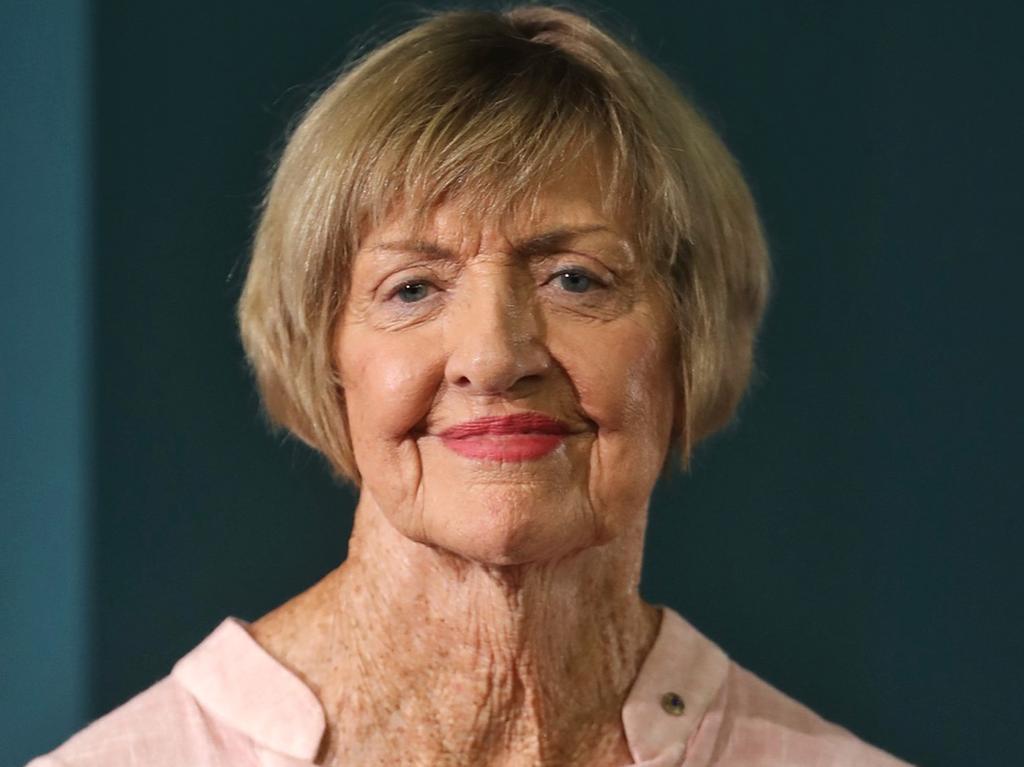
In any case, the Change or Suppression (Conversion) Practices Prohibition Bill is not primarily intended to outlaw a practice that almost every Victorian would abhor. It is a Trojan horse for activism of the most insidious kind. It is an attack on freedom of religion and parental rights by activists who regard the very existence of categories of sex and sexuality to be oppressive.
To call upon the laws of biology when counselling a gender-confused teenager or to suggest they might want to think again before declaring war on their bodies will become a criminal act. The role of doctors, psychiatrists, priests and parents will be reduced to applying a rubber stamp. A minor will still need the approval of a responsible adult to get a tattoo in Victoria, but not to change their gender.
Should this dangerous legislation be approved by Victoria’s upper house next month, it will no doubt be declared a victory over bigotry, prejudice and hate speech that ends an injustice overlooked by previous generations. Yet the attempt to align this insidious movement with grassroots campaigns for women’s rights or gay marriage is a sham. The majority of lesbian, gay and bisexual people gender activists claim to represent are not familiar with its true aims and would not support them if they were.
The insistence that biological males identifying as women should have the right to play women’s sport, use women’s toilets or other female-only spaces puts them in open conflict with feminists. Tennis champion Martina Navratilova is a proud lesbian who demanded last January that Margaret Court Stadium be renamed. But when she dared to argue that allowing trans athletes to compete in women’s sport was unfair, she was accused of transphobia and was dropped by her sponsor, AthleteAlly. When Navratilova and Court find themselves on the same side of the net, something strange is going on.
The new social justice movement is different to the old one. The civil rights movement and the campaign for legal equality for homosexuals began on the streets. The new transgender movement, on the other hand, began in the cultural studies departments of universities and is founded on Theory, with an upper-case T.
Queer Theory, from which today’s transgenderism derives, is an exercise in applied postmodernism that explicitly sets out to change the social order. Transgender activists are not motivated by the plight of those suffering from gender dysphoria, a clinical diagnosis some of these radicals would like to erase. They are political revolutionaries who use “queer” as a verb and deliberately mess with the language to destabilise seemingly fixed categories, like male and female, and to problematise the binary thinking they represent. Their actions flow from a worldview obsessed with hierarchies of power and cultural grievances that reduces everything to a zero-sum political struggle.
An important book by The Wall Street Journal’s Abigail Shrier, published late last year, exposes the weak clinical evidence and questionable assumptions that underpin the Victorian bill. Her book, Irreversible Damage: Teenage Girls and the Transgender Craze, assembles a mountain of evidence to demonstrate that radical transgenderism, as opposed to gender dysphoria, is a recent invention, driven by ideology. The American Psychiatric Association’s most recent Diagnostic and Statistical Manual reports the expected incidence of gender dysphoria at between five and 14 cases for every 100,000 natal males and two to three for every 100,000 natal females. The condition is defined by eight possible symptoms, five of which are readily observable early in a child’s life.
The reinvention of transgenderism in the past decade has changed the game completely. A 2017 survey of teens in the US reports 2 per cent of high school teens identify as transgender. A preliminary study by Brown University’s Lisa Littman suggests few of them would be classified as gender-dysphoric under APA guidelines. This used to be an extremely rare condition affecting preschool boys, most of whom grew out of it. Now it is overwhelmingly teenage girls announcing a new gender, out of the blue, and wanting life-changing hormone drugs and mastectomy. Littman labels this “rapid-onset gender dysphoria” and suggests the most likely cause is social contagion online and in peer groups.
Teenagers, especially teenage girls, as American social psychologist Jonathan Haidt has pointed out, are suffering a “mental health crisis”, with record levels of anxiety and depression. Their chief form of interaction with peers is the mobile phone; their playground is the social media jungle. Among girls aged 10-14 in the US, rates of self-harm are up 189 per cent since 2010, nearly triple what they were only six years before.
This is the social epidemic the Andrews government is fuelling through its deviously named Safe Schools project and the latest legislation, which will mandate the practice known as “gender affirming” care. If a teenage girl claims she is a boy trapped in a girl’s body, or vice versa, the clinician must accept it as the final and unchallengeable diagnosis.
The idea an adolescent knows who she is with a level of certainty to entrust her with life-altering decisions fails the family dinner table test. It lacks empirical evidence and goes against the grain of almost everyone’s memories of their teenage years.
Yet since Queer Theory distrusts science as a construct framed by a white, largely male elite to exercise power, empiricism is just one way of knowing. The lived experience of the oppressed is considered a far more reliable guide to a child’s gender than biology or what, until five minutes ago, was established clinical practice. Shrier interviews dissident clinicians, once leaders in their field, who resist the new madness. Most in their profession and its associated fields of medicine and psychology, however, have heeded the message: get on board with affirmative therapy or lose your job and maybe your licence. Let us hope the members of Victoria’s Legislative Council are made of sterner stuff.
Nick Cater is executive director of the Menzies Research Centre.







On Friday Daniel Andrews ripped into Margaret Court, claiming her views on same-sex marriage were “disgraceful, hurtful and cost lives”. The same criticism might be applied to his government’s handling of quarantine hotels, but that’s another story. More pertinent was Andrews’ opportunistic attempt to justify an ugly law that purports to prohibit gay conversion therapy, a practice he implied Court condones. She does not. Court is possessed with a profound Christian charity lacking in her opponents.